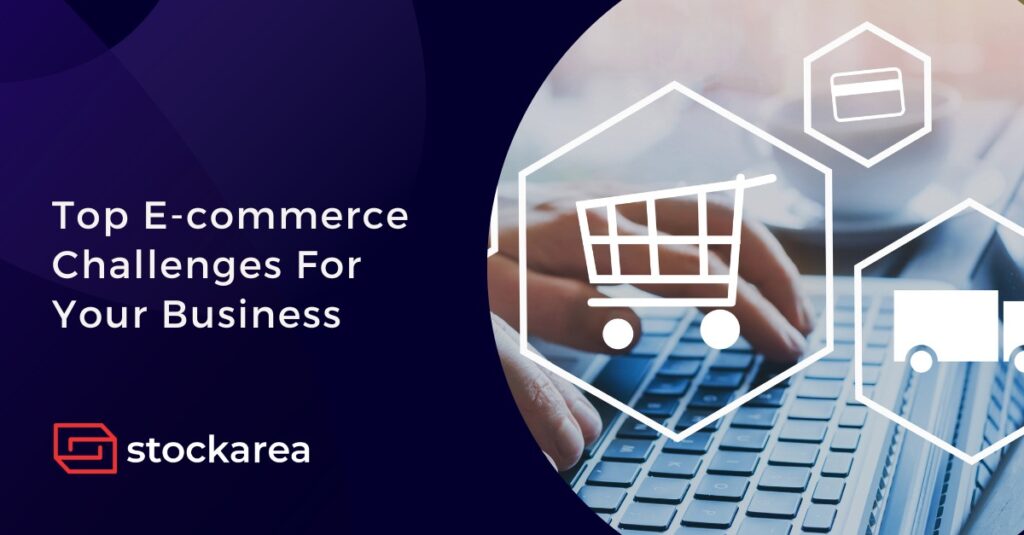The e-commerce industry is growing exponentially as many people prefer the convenience and simplicity of online shopping, as well as many retailers are moving their sales online. But factors like changing customer behaviour, pressure to offer good service while maintaining sufficient profit margins, changing trends and new technology pose many challenges for e-commerce businesses.
Most of the e-commerce challenges can be overcome by automation and adopting modern technology. Challenges in the e-commerce industry are not to be looked at as limitations but as opportunities for growth and improvement. The following is the list of critical ecommerce challenges you should solve for your business.
1. Maintaining Consumer Satisfaction
Consumer satisfaction is the key to a successful e-commerce business. However, keeping up with changing consumer expectations is getting increasingly challenging for the e-commerce industry. Customers want same-day delivery, end-to-end visibility over the movement of their packages, delivery options according to their convenience, and multiple payment options. To achieve these expectations, the supply chain needs to be flexible and adaptable to consumer needs, which can cause disruptions like increased shipping costs and loss of revenue for the e-commerce business.
2. High Competition
Currently, there are more than 5 million e-commerce platforms available globally. The abundance of online businesses has created a fiercely competitive environment for the e-commerce industry. To survive the competition, many companies are trying to upscale their services while introducing new sales strategies to attract more customers. However, constant upscaling of services and new marketing campaigns require a high budget and numerous resources. As a result, many online businesses either completely shut down or suffer losses and low-profit margins to compete against other e-commerce businesses.
3. Reverse Logistics
Nearly 30% of the consumers who buy products from online websites return their orders for multiple reasons. Many consumers will only purchase products if a good return policy is in place. Not having an efficient reverse logistics system makes for a poor customer experience. Processing return orders is an additional cost for the e-commerce industry as it re-initiates the supply chain process. What makes this even more challenging is the increasing return frauds, especially with cash-on-delivery, which can be very detrimental to online businesses.
4. Identity Verification
Data security is a primary concern that consumers have when it comes to shopping online. E-commerce platforms are often subjected to data breaches and cyber-attacks. Compromised cybersecurity can cause the platform to lose consumer trust, in turn, lose profitability. Even the slightest vulnerability can be enough for hackers to infiltrate the system and cause irreparable damage.
E-commerce platforms are vulnerable to identity thefts and fraud from consumers. Many people use fake names, phone numbers, addresses and stolen payment information to make purchases. Verifying each consumer that uses an e-commerce platform is highly challenging and costly.
5. Finding the right logistics partner
E-commerce logistics play an essential role in the scalability of online businesses. It is responsible for vital processes like inventory and warehouse management, order fulfilment and, most importantly, last-mile delivery. Therefore, finding the right logistics partner is essential because one misstep can disrupt the supply activities and directly affect the profitability of the e-commerce business.
6. Adapting Modern Technology
With market trends and technology evolving rapidly, e-commerce businesses face the challenge of adapting to these changes as quickly as possible. Failure to do so can put them behind their competition, thereby losing their consumer base and opportunities for growth. Adapting to new technology and trends requires the business to have an agile business model, which can be difficult for smaller-scale online businesses to introduce as their resources and revenue are limited.
7. Cross Border E-commerce
E-commerce has a global reach, and many platforms take advantage of it to introduce worldwide shipping to increase their scalability. The challenge with cross-border e-commerce is high price conversion rates, customs charges, increased shipping costs, security concerns, lack of transparency and slow transactions, which can make consumers wary of shopping internationally.
8. Omnichannel Support
Omnichannel distribution means utilising unconventional fulfilment options like pop-up distribution centres and micro-fulfilment centres, which can increase the functionality of the e-commerce business. Omnichannel support means providing e-commerce services across multiple platforms like websites and mobile apps. Having omnichannel support and distribution makes the e-commerce industry more versatile and saves time as well as money. The challenge arises when the channels are improperly managed, leading to problems like decreased platform efficiency, loss of revenue, and consumer dissatisfaction.
9. Customer Retention
Building a loyal customer base is more cost-effective than finding new consumers. However, retaining consumers is a difficult task because even the smallest inadequacy might result in a customer not returning to the online store. Poor user experience, lack of personalisation, unpredictable delivery periods and lousy marketing practices are some of the reasons why e-commerce platforms can have low customer retention.
10. Inefficient Order Fulfilment
Order fulfilment is the most challenging and unpredictable aspect of e-commerce. Delays, mismatched orders, damaged products, improper route optimisation and proof-of-delivery (POD) verification are some significant challenges leading to inefficient order fulfilment. Inadequate order fulfilment accounts for customer dissatisfaction and increases costs, directly affecting the e-commerce company’s growth.
Related posts
- Top 7 Strategies To Reduce Returns In Ecommerce Business
- 7 Major Challenges Of Last-mile Delivery
- What Is E-Commerce Fulfillment?
- 6 Proven Tips To Reduce Shipping Costs
- What Is A Shipping Label?
- How To Start Ecommerce Business In India
- 10 Key Benefits Of Ecommerce For Your Business
- Why you should start an Ecommerce Business in India
- 13 Reasons To Start Your Ecommerce Business
- How To Start An Ecommerce Business & Sell Products Online
- 23 Ecommerce Business Ideas To Make Money
- 8 Key Benefits Of Ecommerce Website For Online Sellers
- Amazon Vs Alibaba: Who Is Winning The Ecommerce Battle?
